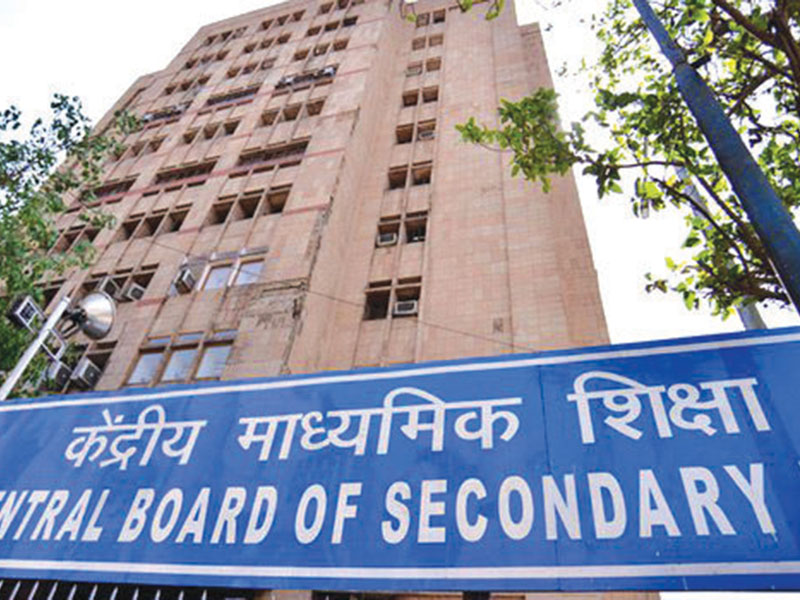Autar Nehru (Delhi)
CBSE headquaters, Delhi: calibrated switch
One of the most enduring — and justified — criticisms of K-12 education in post-independence India is addiction to rote learning through memorisation rather than comprehension. Obstinacy of the country’s 69 school examination boards to reward students’ memorisation rather than originality, critical thinking and problem-solving skills in K-12 education is to a great extent the cause of India’s economic backwardness and pervasive poverty.
Although a small minority of academics and development economists as also EducationWorld (estb.1999) have been advocating switch to comprehension aka competency-based learning for several decades, a decisive shift to competency-based learning began just five years ago when the nine-member Dr. K. Kasturirangan Committee in its 484-page draft National Education Policy (NEP) recommended several sensible and overdue reforms. Among them: stress on ECCE (early childhood care and education), high priority for functional literacy and numeracy of all children by age eight; encouraging holistic school education with compulsory vocational learning; exam reforms to test children’s conceptual comprehension, creativity and critical thinking capabilities rather than memory; introduction of continuous formative assessment systems to replace summative exams, and promotion of new digital technologies in school education. In July 2020, the 60-page National Education Policy (NEP) 2020 accepting the Kasturirangan Committee’s draft in toto was approved by the Union cabinet.
Four years later, the Central Board of Secondary Education (CBSE) — the country’s largest national school-leaving examinations board which has 29,187 primary-secondary schools including several top-ranked private schools (Emerald Heights International, Indore, Mayo College, Ajmer, DPS, R.K. Puram, Delhi, Modern School, Delhi among others) — affiliated with it, has announced a calibrated switch towards competency-based assessment which will perforce change teaching-learning/pedagogy in affiliated schools.
In a circular dated April 3 to the heads of all affiliated schools CBSE stated: “The Board in accordance with National Education Policy, 2020 has taken multiple steps towards implementation of Competency Based Education in schools, ranging from aligning assessment to competencies, development of exemplar resources for teachers and students as well as continuous capacity building of the teachers etc. The main emphasis of the Board was (sic) to create an educational ecosystem that would move away from rote memorisation and towards learning that is focused on developing the creative, critical and systems thinking capacities of students to meet the challenges of the 21st century.”
Come 2026, the country’s 29,187 CBSE schools (as of date) will switchover to 100 percent competency-based assessment and by that logic, move away from exam-centric rote learning to competency (skills and critical thinking)-based learning. The move will coincide with the CBSE holding examinations twice a year for which it is reportedly at an advanced stage of finalising an announcement soon.
However in light of the long history of rote and/or memorisation learning, CBSE’s shift to competency-based assessment is being calibrated. In the academic year 2024-25 starting July-August, the share of competency-based questions for the year-end board examination (theory) for classes XI-XII will increase to 50 percent and rise to 100 percent in the academic year 2026-27. However, the assessment format of class IX-X students remains unchanged from last year.
The leisurely pace at which CBSE’s overdue switch to competency/comprehension-based learning — its rival CISCE (Council for Indian School Certificate Examinations) board claims that its assessment and pedagogy for 2,891 affiliated schools is “far ahead” — has aroused some indignation. “CBSE is a subsidiary of the education ministry, it moves at government speed,” says an irate headmaster, speaking on condition of anonymity.
On the other hand, CBSE officials, who in keeping with the culture of the ruling BJP dispensation in Delhi, are invariably reluctant to speak on record, contend that faster implementation of the switchover to competency-based learning would be “very difficult” for small town and rural affiliated schools.
Principals of most affiliated schools tend to agree that this important assessment and pedagogy reform has to be implemented gradually. “We all accept the rationale of this change introduced by CBSE as per NEP 2020 recommendations. But change has to be gradual to enable schools to plan their teacher training and capacity building to teach children to develop critical thinking and problem-solving skills. A lot of practice will also be required for students to get used to the changed format of questions which will necessitate study of concepts in detail to score good marks,” says Dhriti Malhotra, Director/Principal of the Manav Rachna International School, Gurugram.
Given the country’s long tradition of rote-based learning, CBSE’s cautious assessment and pedagogy reform is prudent. More haste could translate into less speed.
